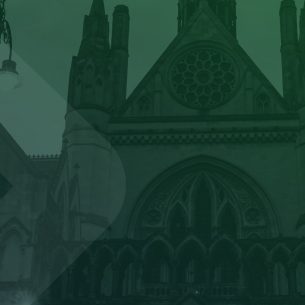Partner Brian Swan investigates the Serious Fraud Office’s (SFO) introduction of new operational guidance for section 2 interviews and the negative impacts on legal representation in The Barrister.
Brian’s article was published in The Barrister, 31 August 2016.
The right to legal representation when being interviewed as part of a criminal investigation has always been a central tenet of the British legal system. The fact that this right is not, in truth, enshrined in common law, means that it is open to erosion and variation. The recent ‘tweaking’ of the principal of Legal Professional Privilege, hence the erosion of the right to representation which the latest Serious Fraud Office (SFO) guidance represents is something which does not create much in the way of publicity beyond specialist circles but has the potential to bring about a fundamental change.
Whilst the right to have a legal representative present during an interview is not part of common law it is set out in the Police and Criminal Evidence Act 1984 (PACE). Section 58 and code C of PACE which states that a person who has been arrested and detained has the right to consult with a solicitor at any time and to have them present during the interview.
Interviews which are conducted by the Serious Fraud Office (SFO) under section 2(2) of the Criminal Justice Act 1987 (CJA) are generally referred to as compelled interviews and are invariably used for potential witnesses. They fall into something of a grey area as the individual does not enjoy the same safeguards and protections of a suspected person. The fact that an individual can be compelled to attend an interview and answer questions under Section 2 without the provisions of PACE being applied results in something of a legal no man’s land; no caution means no right to silence and as the SFO’s own Guidance for
Witnesses sets out, a failure to fully comply with the remit of the interview can have serious, even criminal, consequences.
The change in the recent SFO guidance stems from a High Court judgement handed down last year. The judgement followed a case in which the SFO compelled three employees of GlaxoSmithKline Plc (GSK), who were not themselves under suspicion of wrongdoing, to attend Section 2 interviews. The three employees informed the SFO that, as they assumed was their right, they would like to have lawyers for GSK representing them at their interviews. The SFO responded by telling them they could no longer have any representation at all. Following further discussions, the SFO relented and granted permission for legal representatives to attend the interviews but only if those representatives were not taken from the ranks of the GSK lawyers. It should be noted that this decision was predicated on a refusal to accept that the lawyers in question would, themselves, be able to navigate an ethically acceptable path around any potential conflicts of interest. It should also be noted that an interviewee denied representation, or one who has that representation withdrawn with neither notice nor right to appeal, is most likely to respond to their lack of legal advice by refusing to sign the witness statement and therefore to give evidence at trial.
The SFO decision led to the interviewees applying to the High Court for a judicial review of the SFO decision, the case of R (on the application of Lords Reynolds and Taylor) v Director of the Serious Fraud Office [2015] EWHC 865 (Admin). The High Court upheld the decision by the SFO and, while this decision is only a denial of permission to seek a review, it clearly sent out a message strong enough to embolden the SFO to instigate the latest change in guidance.
There is, then, a direct imputation of the ethical standards of the lawyers involved in the decision to have them excluded from Section 2 interviews. The SFO may counter that professional lawyers are being somewhat ‘precious’ to view themselves as being defamed in this way and that the guidance change is merely a precautionary measure which is precisely the heart of the matter. The SFO Guidance for Lawyers sets out, in black and white, precisely what is expected of lawyers present in Section 2 interviews but these detailed instructions are apparently not good enough for the SFO.
The issue is one of both tone and practice. The SFO are not even pointing to a case in which a conflict of interest has taken place. They are instead projecting the possibility of such a conflict onto the situation and drawing up guidance which is fundamentally flawed.
The SFO’s Operational Handbook makes reference to the Solicitors Regulation Authority guidance on the presence of an employer’s solicitor at an employee’s interview, stating that:
‘in essence, the guidance states that it is not generally appropriate for an employer’s solicitor to be present at an employee interview’.
This is a partial reading of the SRA guidance however, which is all the more troubling if it played a part in influencing the High Court ruling and subsequent change in SFO guidance. The SRA guidance on the issue refers to a situation in which the lawyer has been instructed only by the employer (the section is headed ‘Acting for the employer only’) and might therefore inhibit the employee from speaking freely. Indeed, the sector headed ‘Acting for employer and employee’ is merely a reminder that any potential conflicts of interest need to be considered carefully by the lawyers concerned, and that dealing with any ethical considerations should be a matter solely for the lawyers, with reference to the SRA Code of Conduct.
The new guidance, in effect, ignores all of this and implies that there are no circumstances in which lawyers could act for employee and employers without a damaging conflict of interest. This is a stance which institutionalises mistrust and suspicion in a manner which is likely to be far more damaging than the perceived problem it is intended to solve.





